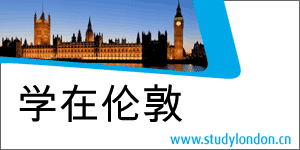不支持Flash
|
|
|
|
时事双语:印度--摇摆在“和平”之外http://www.sina.com.cn
2007年09月04日 11:12 钱江晚报
For India's government, despite the hubbub in Parliament, the controversial deal it struck last month with America to allow civil nuclear co-operation between the two countries is already radiating success. Shinzo Abe, Japan's prime minister, was in Delhi this week to cement a “strategic partnership”, despite Japan's decades-long discomfort with India's bomb. Meanwhile, Australia's cabinet, hitherto resolute in its refusal to sell uranium to any country outside the Nuclear Non-Proliferation Treaty (and only to a select few within it), has taken its cue from America and agreed in principle to sell uranium to India, even though India hasn't signed the NPT, and won't. India is breaking out of the nuclear quarantine imposed after its first “peaceful” nuclear test in 1974. But for commerce to resume, it must first agree with the International Atomic Energy Agency (IAEA) which safeguards will apply to nuclear facilities it has designated “civilian”. It will then need an exemption from the 45-nation Nuclear Suppliers Group (NSG), which bars nuclear trade with countries, such as India, that refuse to apply such international safeguards to all their nuclear facilities. Some governments are deeply unhappy at carving an India-sized hole in the nuclear rules. But none has yet vetoed it. India (like Pakistan and Israel) never signed the NPT; its bombs are not illegal. Since no one expects it to give them up, the Bush administration argues it is better to bring India in from the cold and have it take on similar responsibilities to the treaty's five recognised nuclear powers: America, Britain, France, Russia and China. That, say the Americans, would be a net gain for non-proliferation. This newspaper has long disputed that. Among other dangerous loopholes, some of which have widened since Congress gave its conditional go-ahead to the deal in December, India is pointedly not taking on the obligations and practices of the official five. Unlike them, it has refused to sign the test-ban treaty. Unlike them, it declines to end the production of fissile material—uranium and plutonium—for bombs. America's readiness to make an Indian exception to all the rules risks snapping two of the joists that support the global non-proliferation structure. At the IAEA, India wants the right not just to say which reactors can be inspected, but when. Such unprecedented laxity in India will make it hard to get others—for example, Brazil, which already does some uranium enriching of its own—to accept the tougher inspections. 时事双语:印度--摇摆在“和平”之外 对印度政府来说,尽管议会吵吵闹闹,它上个月和美国达成的两国间具有争议的合作开发民用核技术的协议已经获得成功。日本首相安倍晋三本周访问了德里,以加强“战略合作伙伴关系”,尽管日本几十年来一直对印度研发原子弹感到不满。与此同时,尽管澳大利亚内阁至今仍拒绝向签署“核不扩散条约”国以外的国家出售铀(只向经过选择的几个签约国出售),但是,在得到美国的暗示后已经原则上同意向印度出售铀,尽管印度还没有也不会签署“核不扩散条约”。 印度已经突破了1974年第一次“和平”核试验后被强加在头上的核隔离。但为了重新启动核贸易,印度必须首先和国际原子能机构达成协议以确定将什么样的安全装置安装在它所说的“民用型”核设施上。印度还需要得到由45个国家组成的“核供应国集团”的豁免,该集团禁止与类似印度那样拒绝在所有核设施上安装国际上认可的安全装置的国家进行贸易。虽然一些成员国政府对于在核规则范围内给印度量身定做豁免权感到非常不满,但是还没有哪个成员国投否决票。 印度(就像巴基斯坦和以色列)从来没有签署过“核不扩散条约”;它的原子弹不是非法的。既然没有人寄希望于印度放弃原子弹,布什政府争辩说,最好还是不要冷落它,使它肩负起和5个核大国美国、英国、法国、俄罗斯和中国类似的责任。美国人说那将是核不扩散的净得利。 对此本刊长期以来一直存有争议。自从去年12月国会有条件地同意了和印度的交易后,一些危险的漏洞被扩大了。印度显然不会像5个核大国那样负责和行事的。和5个核大国不同,印度拒绝签署禁止核试验条约,和5个核大国不同,印度拒绝停止生产用于制造原子弹的裂变材料铀和钚。 美国准备在所有核规则上给印度开绿灯威胁到了全球核不扩散框架的两大支柱。在国际原子能机构内,印度不仅想有权说哪个反应堆可以检查,而且还可以指定何时检查。对印度这种没有先例的宽松将很难使像已经进行了一些铀浓缩的巴西那样的国家接受更为严厉的核查。
【发表评论】
不支持Flash
|

